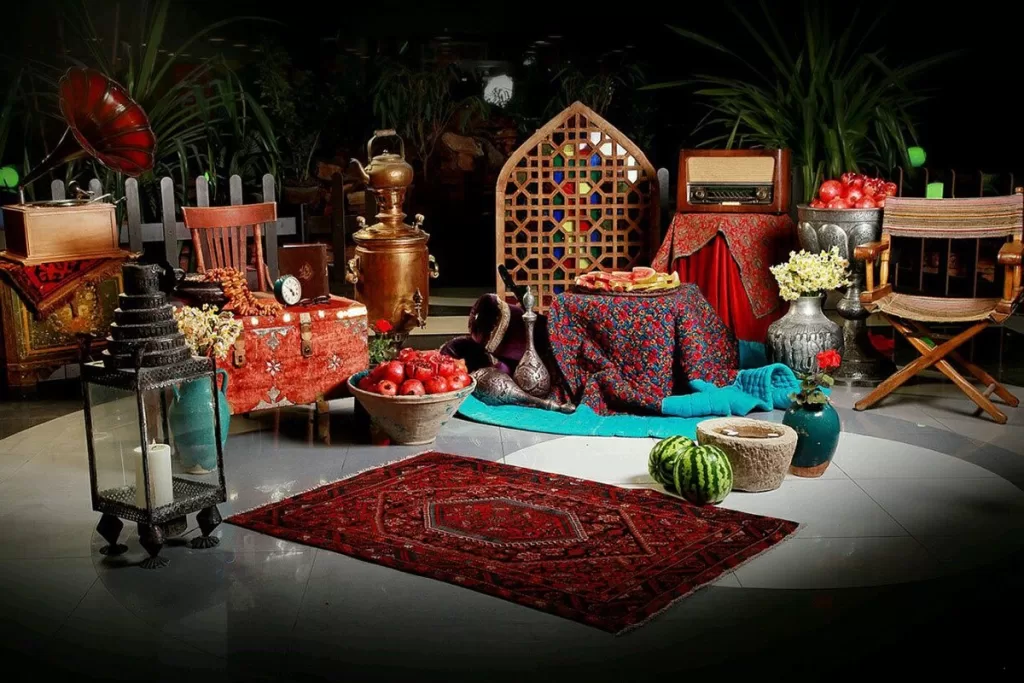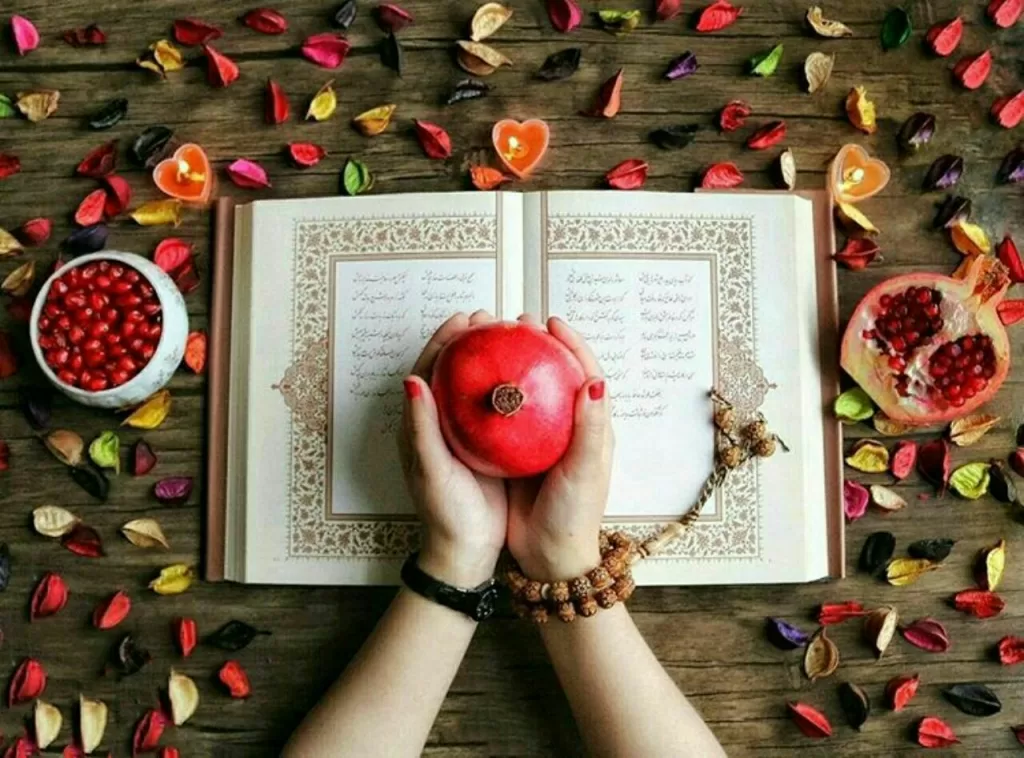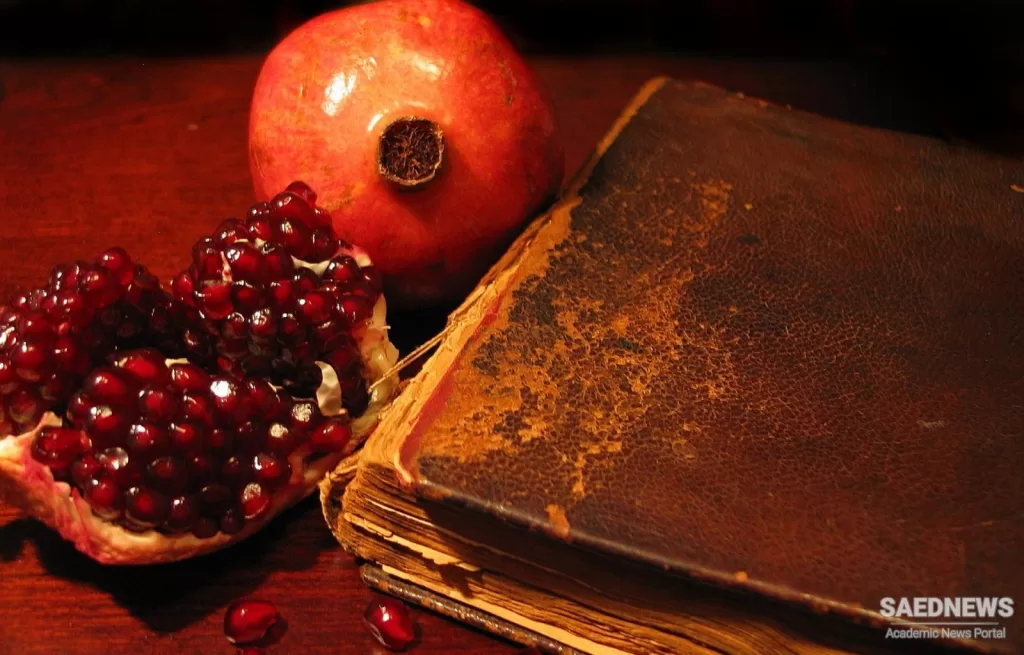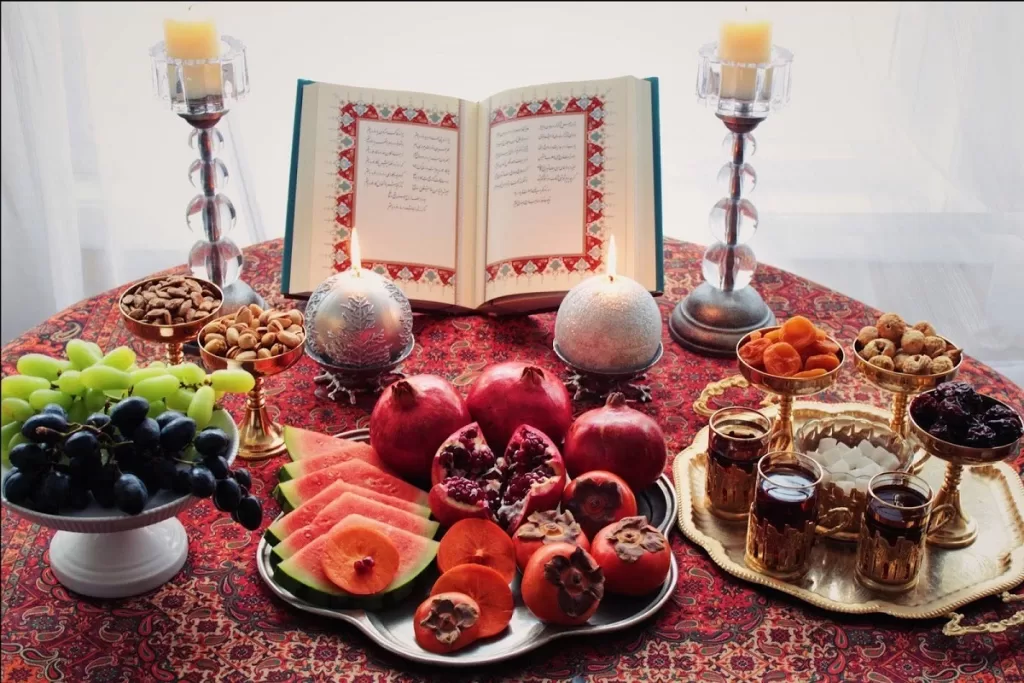Celebrate the Longest Night of the Year: Shab-e Yalda in Iran
Do you love celebrating winter solstice? Then, Yalda Night is perfect for you! It is a unique and fascinating Persian festival celebrated on the longest night of the year in Iran. Yalda Night, also known as Shab-e Chelleh, is a time for families to come together and enjoy traditional foods, music, poetry readings, and other activities.
The history and origins of Yalda Night
Yalda Night has its roots in ancient Iranian traditions dating back to the Zoroastrian era when people believed that darkness represented evil spirits. As such, they would stay up all night to keep these spirits away by lighting bonfires and sharing food with each other. With the arrival of Islam in Iran, Yalda Night took on a new meaning, although it still represents the hope and joy of overcoming darkness with light.
How is Yalda Night celebrated in Iran?
In modern times, Yalda Night is celebrated by gathering with family and friends, eating traditional foods, reading poetry, and having fun. Iranians across the country usually spend the night at home with their loved ones, eating pomegranates and watermelons and drinking hot drinks such as herbal tea or saffron tea. Iranian television channels also broadcast special programs commemorating Yalda Night.

Traditional foods and drinks for Yalda Night
Iranian cuisine is renowned for its delicious and exotic flavors, and Yalda Night is no exception. Some popular dishes include Ash-e Reshteh (Persian noodle soup), Khoresh Gheymeh (stewed lamb and yellow split peas), and Fesenjan (chicken with walnut and pomegranate sauce). Iranians also enjoy fruits like pomegranates, which symbolize fertility and life, and watermelons, which are perfect for quenching thirst on hot summer nights.
Activities and customs associated with Yalda Night
Along with food, poetry recitation, and music, Iranians also enjoy playing games like backgammon (takhte nard), reading Hafez poems, and telling stories. These activities help create a warm and relaxed atmosphere, allowing people to connect with their loved ones on a deeper level.
Yalda Night and Iranian culture
Yalda Night has played an essential role in Persian culture for centuries, inspiring poets like Rumi and Hafez to write about love, life, and spirituality. Iranian music and dance are also an integral part of the festival’s celebrations, with artists performing traditional pieces on television and radio stations. Overall, Yalda Night reflects the beauty and richness of Iranian culture, showcasing its art, literature, and cuisine to the world.
Celebrating Yalda Night outside of Iran
With millions of Iranians living abroad, there is always a demand for Yalda Night celebrations outside of Iran. Many Iranian communities worldwide organize events and parties where they can come together and celebrate their heritage with others. Additionally, non-Iranians are also showing more interest in learning about the festival and joining in on the festivities.

Sharing Yalda Night with non-Iranian friends and family
One of the best ways to share Yalda Night with non-Iranian friends and family is by introducing them to traditional foods and drinks and explaining the significance of the holiday. You can also invite them to participate in cultural activities such as storytelling or poetry readings, helping them feel more connected to Iranian culture.
The significance of Yalda Night
Yalda Night represents the rebirth of light after the longest night of the year, symbolizing hope, unity, and togetherness. It is a time for families to come together, share food, and connect with each other on a deeper level. As such, Yalda Night has become an essential part of Iranian culture, celebrating its rich history and traditions.
Yalda Night gifts and decorations
One of the best ways to celebrate Yalda Night is by gifting your loved ones with something special. Some popular gift ideas include pomegranates, watermelons, flowers, or handmade crafts. Iranians also love decorating their homes with colorful silk tablecloths, candles, and other festive items.
DIY Yalda Night decorations and ideas
If you’re feeling crafty, there are plenty of DIY decoration ideas for Yalda Night that you can try. For example, you can make a bonfire-themed centerpiece using twigs and dried leaves, create a pomegranate garland from paper, or paint decorative plates with traditional designs. The possibilities are endless!

How has Shab-e Yalda evolved over time?
Yalda Night has a rich history that dates back to ancient Persia. The celebration has evolved over time, as different rulers and dynasties have influenced the traditions surrounding the holiday. For example, during the Safavid era in the 16th century, Yalda Night became a popular occasion for poetry recitals, music performances, and storytelling sessions. Today, Yalda Night remains an important cultural event for Iranians around the world, and many people celebrate by gathering with friends and family, eating special foods, and reading Hafez’s poetry.
The impact of technology on Shab-e Yalda celebrations
With the rise of technology, many Iranians now use social media platforms like Instagram and Telegram to share photos and videos of their Yalda Night celebrations with friends and family members who live far away. Additionally, some people use technology to facilitate virtual gatherings with loved ones who are unable to attend in person. However, there is also concern that technology may be undermining the traditional spirit of Yalda Night by encouraging people to spend more time on their devices instead of interacting with one another in person.
Yalda Night in different parts of Iran
While Yalda Night is celebrated throughout Iran, there are regional variations in the traditions and customs associated with the holiday. In some parts of the country, for example, people eat pomegranates and watermelon, while in other regions, they prepare special dishes like ash-e reshteh or khorosht-e fesenjan. The way Yalda Night is celebrated also varies depending on whether people live in urban or rural areas.
Regional variations in Yalda Night traditions and celebrations
In addition to the differences between urban and rural areas, there are also regional variations in Yalda Night traditions across Iran. For example, in the northwest regions of the country, people light bonfires and jump over them as a way of warding off evil spirits. In other parts of Iran, it is customary to read Hafez’s poetry or play traditional music on the tar or santur.

Yalda Night in rural vs. urban areas in Iran
In rural areas, Yalda Night celebrations often involve more traditional customs, such as lighting fires or sharing stories with family members. In contrast, urban areas tend to have more modern celebrations that may include attending concerts or going out to eat at restaurants. However, both rural and urban Iranians consider Yalda Night an important occasion for spending time with loved ones and reflecting on the past year.
Yalda Night and other winter festivals around the world
Many cultures around the world celebrate winter solstice festivals that are similar to Yalda Night. For example, in Scandinavia, people celebrate Yule by lighting candles and feasting with family and friends. In China, the Dongzhi Festival is celebrated by eating tangyuan (sweet glutinous rice balls) and spending time with loved ones. These festivals all share common themes of warmth, light, and community during the longest night of the year.
Comparing Yalda Night to other winter solstice celebrations
Despite their similarities, there are also distinct differences between Yalda Night and other winter solstice festivals around the world. For example, while many other cultures focus on the idea of rebirth and renewal during the solstice, Yalda Night is more focused on reflection and introspection. Additionally, the specific rituals and traditions associated with each festival vary depending on the culture and region.
What can we learn from other cultures’ winter festivals?
By studying the winter solstice festivals of other cultures, we can gain a better understanding of how people all over the world have developed their own unique ways of coping with the darkness and cold of winter. Additionally, we can learn about the importance of community and connection during times of hardship, as well as the power of ritual and tradition in shaping our perceptions of the world around us.
In conclusion, Yalda Night is a holiday that has evolved over time and reflects Iran’s rich cultural heritage. While modern technology has impacted the way the holiday is celebrated, Iranians continue to gather with friends and family to share food, stories, and music on this important occasion. As we look to other winter festivals around the world, we can find common themes of warmth, light, and community, as well as unique traditions and rituals that reflect the diversity of human experience.
FAQs about Shab-e Yalda
- What is Yalda Night?
Yalda Night is an ancient Iranian holiday that celebrates the winter solstice, the longest night of the year. It is marked by gatherings with family and friends, the sharing of special foods, and the reading of poetry. - When is Yalda Night celebrated?
Yalda Night falls on the eve of the winter solstice, which typically occurs on December 20 or 21 each year. - What are some traditional foods associated with Yalda Night?
Pomegranates, watermelon, nuts, and sweets are often eaten on Yalda Night, along with dishes like khorosht-e fesenjan (a stew made with pomegranate paste and walnuts) and ash-e reshteh (a noodle soup). - What role does poetry play in Yalda Night celebrations?
Poetry is an integral part of Yalda Night celebrations, particularly the works of the 14th-century poet Hafez. People often gather to read his poetry and interpret its meaning. - How has Yalda Night evolved over time?
Yalda Night has undergone various changes throughout history, reflecting the influence of different rulers, dynasties, and cultural movements. However, the core value of spending time with loved ones remains central to the holiday. - What are some regional variations in Yalda Night traditions?
Different regions of Iran have their own unique traditions associated with Yalda Night. For example, people in the northwest light bonfires and jump over them, while those in the south visit Hafez’s tomb and recite his poetry. - What is the impact of technology on Yalda Night celebrations?
Technology has both positive and negative effects on Yalda Night celebrations. While it can facilitate virtual gatherings and enable people to share photos and videos of their celebrations, it may also detract from the traditional spirit of the holiday. - How do Yalda Night celebrations differ between rural and urban areas?
In rural areas, Yalda Night celebrations tend to involve more traditional customs, such as lighting fires or sharing stories with family members. In contrast, urban areas tend to have more modern celebrations that may include attending concerts or going out to eat at restaurants. - What can we learn from other cultures’ winter festivals?
By studying the winter solstice festivals of other cultures, we can gain a better understanding of how people all over the world have developed their own unique ways of coping with the darkness and cold of winter. - Why is Yalda Night an important cultural event for Iranians?
Yalda Night is a way for Iranians to connect with their cultural heritage and celebrate the traditions that have been passed down through generations. It is a time for reflection, gratitude, and renewal.

